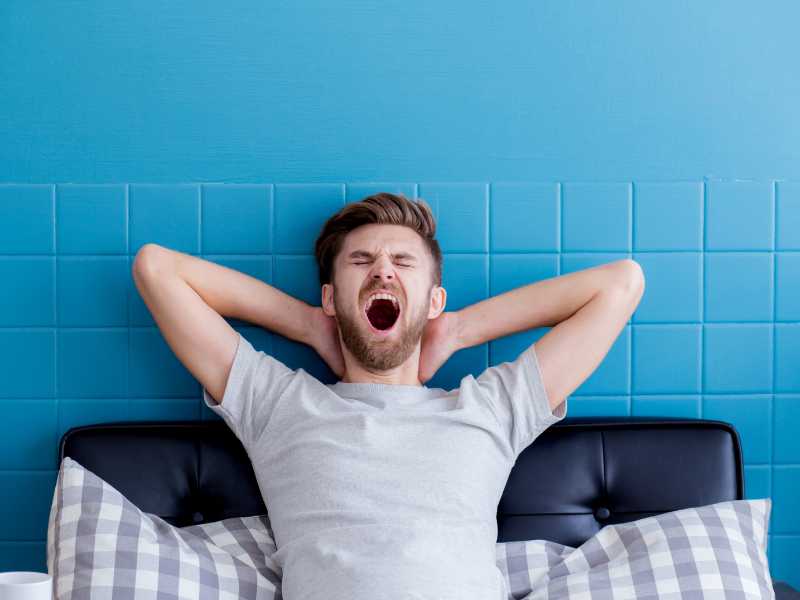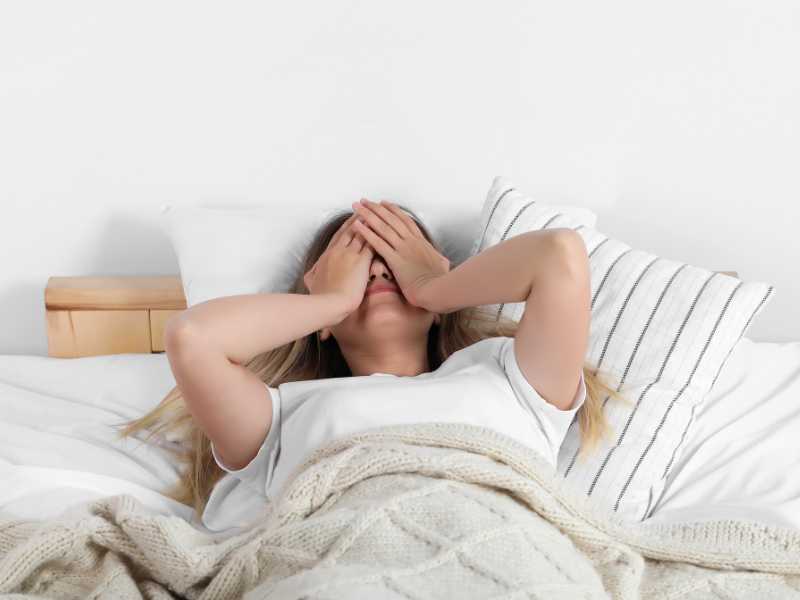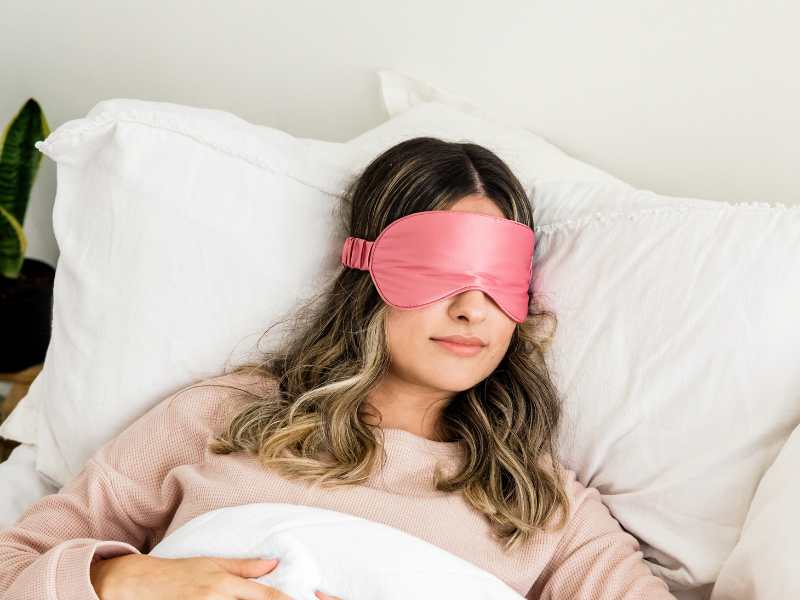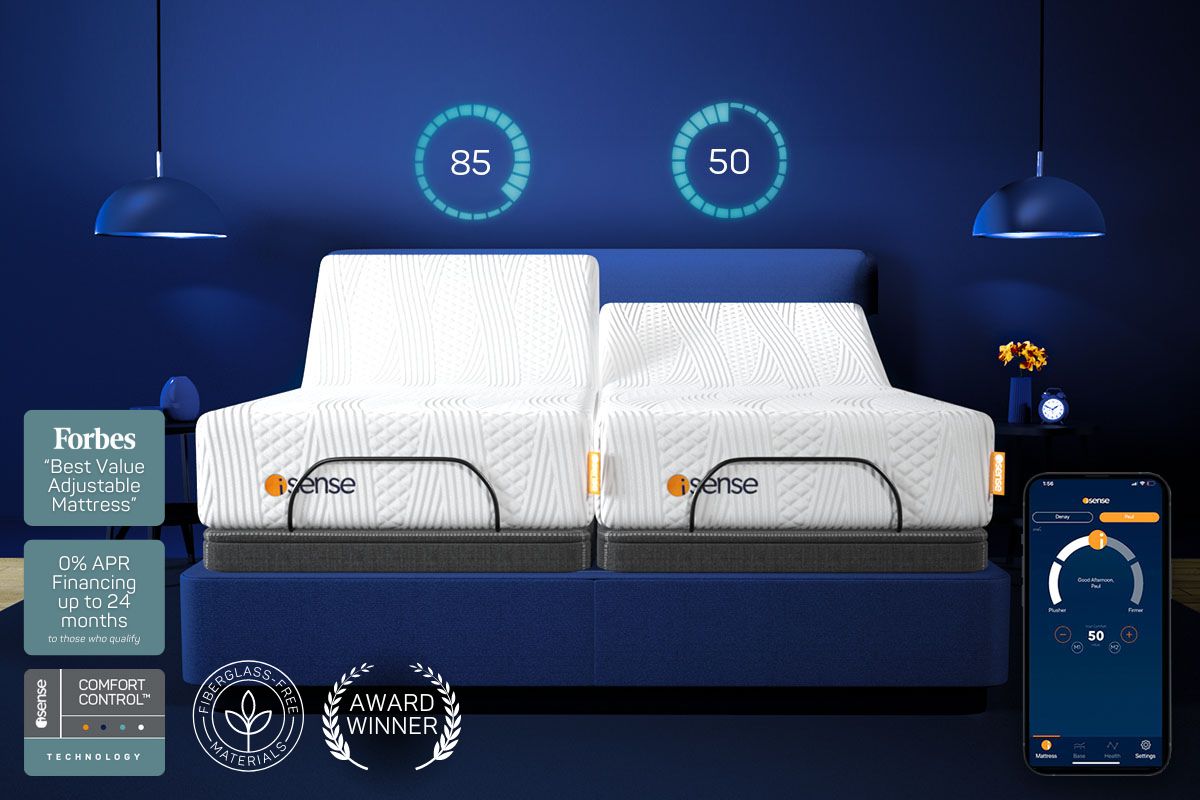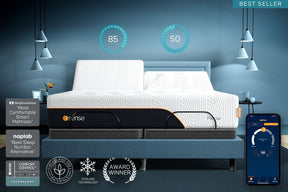Feeling Groggy After Waking Up? Science Has A Name For That
Sleep inertia is a physiological state that occurs when you wake up, characterized by a temporary feeling of grogginess, disorientation, and a reduction in cognitive function. It’s a transitional period between sleep and full wakefulness, where the brain is essentially caught between two states.
During this time, people may find it difficult to perform tasks immediately after waking up, as their alertness and ability to concentrate are not yet at their peak. This grogginess can be attributed to several factors, including high adenosine levels, which build up during extended periods of wakefulness and decrease during sleep. Upon waking, adenosine levels are still in the process of clearing, contributing to the feeling of sleep inertia. Additionally, blood flow to the brain is reduced during sleep and has not yet returned to the levels required for full cognitive function, further intensifying the sensation of sleep inertia.
Understanding sleep inertia is important, especially for those who need to perform immediately upon waking, such as emergency responders or anyone making critical decisions first thing in the morning. Strategies to alleviate sleep inertia range from altering sleep environments to adjusting alarm clocks so they coincide with lighter sleep stages.
Understanding Sleep Inertia
Sleep inertia is a transitional state of lowered arousal occurring immediately after waking up, where performance and alertness levels are significantly impaired. Recognizing its nuances is essential for identifying the best strategies to combat it.
Defining Sleep Inertia
Sleep inertia is when you feel groggy and not fully awake right after you wake up, making it hard to think clearly or be alert. This phenomenon is typically strongest immediately after waking and can last from a few minutes to several hours. Studies have linked this state to the interruption of slow-wave sleep, characterized by delta waves.
Causes and Contributing Factors
Several factors contribute to sleep inertia. Disruptions in the sleep cycle, particularly when waking from deep sleep or slow-wave sleep, play a crucial role. Sleep quality, sleep deprivation, and irregular sleep patterns associated with shift work or jet lag can make sleep inertia worse.
Lifestyle choices such as alcohol and caffeine intake close to bedtime may have an impact. Napping for longer than 20-30 minutes can also lead to sleep inertia, as the body may enter deeper sleep stages from which it is harder to wake up.
Symptoms and Effects on Performance
The symptoms of sleep inertia include a sense of grogginess, a decrease in reaction time, reduced attention and cognitive performance, and less vigilance. For those performing safety-critical tasks or decision making, these symptoms can be significant.
Studies have shown that sleep inertia can impair spatial memory and has the potential to impact any tasks that require a high level of performance shortly after waking. It’s important during these moments to engage in activities that promote fully waking, such as light exposure, which helps to reset the body's circadian rhythm.
Strategies for Managing Sleep Inertia
Overcoming sleep inertia involves both proactive strategies and reactive measures. The aim is to enhance overall sleep quality and mitigate grogginess upon waking.
Sleep Hygiene and Lifestyle Adjustments
Adopting good sleep hygiene plays an important role in preventing sleep inertia. You should establish a consistent sleep schedule by going to bed and waking up at the same time every day, including weekends. This regularity supports the body's natural circadian rhythm.
Ensuring an environment conducive to sleep is also key — it should be dark, quiet, and at a comfortable temperature. Natural light exposure upon waking helps increase alertness and can reset the body's internal clock.
- Exercise regularly, but not right before bedtime
- Limit exposure to electronics before bed
- Avoid caffeine and large meals close to bedtime
Countermeasures and Techniques
Immediate countermeasures to combat sleep inertia include light therapy and controlled exposure to bright light in the morning. Self-awakening techniques, where individuals wake up naturally without an alarm, can reduce disorientation. Engaging in light physical activity to increase blood flow to the brain also aids in quicker waking.
For those who must nap, short naps that do not enter deep sleep cycles help avoid sleep inertia.
- Utilize gentle alarms that progressively increase in volume
- Consider stimulants like a cup of coffee but within tolerable limits
When to Seek Professional Help
Persistent and severe sleep inertia might be symptomatic of underlying sleep disorders such as sleep apnea or idiopathic hypersomnia. If standard measures fail to alleviate the grogginess, individuals should consult a sleep specialist.
A tailored sleep study is often recommended to diagnose conditions like insomnia or circadian rhythm sleep disorder. Seeking timely professional advice helps you get the right medical treatments and lifestyle changes recommended.







